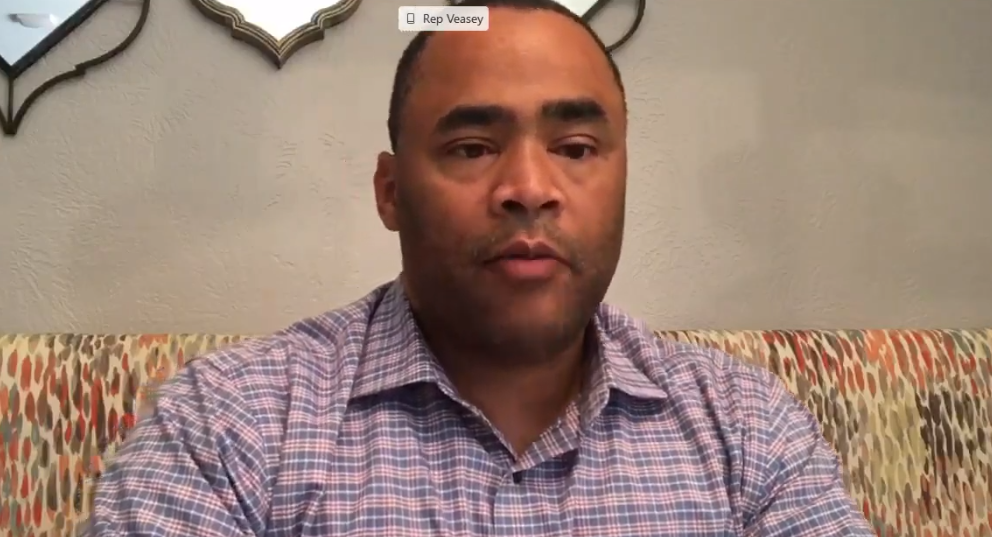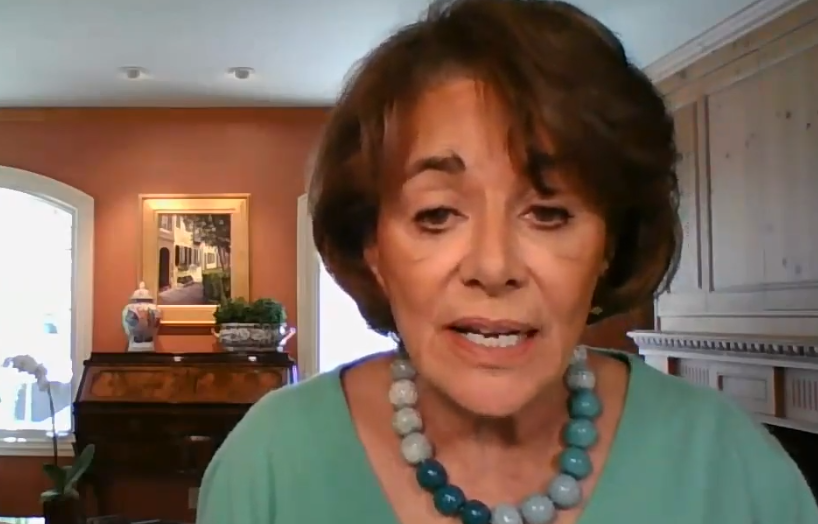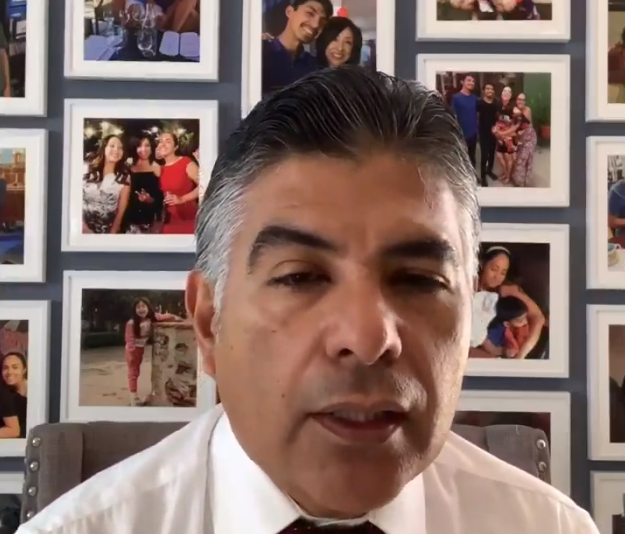House E&C Approves Bipartisan Communications Bills
Includes legislation on diversity, spectrum, and network security

The smarter way to stay on top of broadcasting and cable industry. Sign up below
You are now subscribed
Your newsletter sign-up was successful
The House Energy & Commerce Committee has approved a number of bipartisan communication-related bills by voice vote, including a stand-alone bill to cancel the T-band auction, which almost nobody wants the FCC to have to go through with, and a bill that would require the FCC to consider "market entry barriers for socially disadvantaged individuals" in its reports to Congress on competition in the media marketplace.
That came at a marathon (four hours) July 15 markup, where a total of 30 bipartisan bills were approved with a dearth of no votes and a wealth of agreement. It was the first fully virtual markup in the committee, and one of the most collegial such sessions in recent memory. Rep. Anna Eshoo (D-Calif.) said all the bills were "bursting with common sense."
The virtual hearing featured the now common glitches of muted talkers, cross-talk, and some lower resolution video, but there were no major issues.
Related: FCC's Pai Joins Call for Congress to Ax T-Band Auction
H.R. 451, the Don’t Break Up the T-Band Act of 2019, was introduced by Reps. Eliot Engel (D-N.Y.), Lee Zeldin (R-N.Y.), Al Green (D-Tex.) and Peter King (R-N.Y.).
The FCC is currently slated to reclaim spectrum from first responders for auction, but FCC Chairman Ajit Pai has asked Congress to reverse that decision. In the 2012 Middle Class Tax Relief and Job Creation Act, Congress required the FCC to reallocate and auction the spectrum, which has been used for decades by public safety licensees, and to fund the relocation of those users elsewhere.
Rep. Eliot Engel (D-N.Y.) said Congress can't let the T-band auction go forward in 2021 because the move would cost more than the spectrum would bring at auction and could put emergency communications at risk in the interim. He said he did not usually agree with Pai but did when it came to the T-band.
The smarter way to stay on top of broadcasting and cable industry. Sign up below
H.R. 5567, the Measuring the Economics Driving Investments and Access for Diversity Act of 2020 (or “MEDIA Diversity Act for short) was introduced by Reps. Billy Long (R-Mo.) and Rep. Marc Veasey (D-Tex.). It would make sure the FCC looked at what opportunities socially disadvantaged individuals have, or don't have, to be players in the communications space when it conducts its annual review of the communications marketplace. The FCC is also currently under a court order to better explain the impact of its deregulatory policies on minority and women ownership of media properties.

Rep. Veasey urged swift passage of the bill, which he said could help solve the problem of diversity and inclusion in media ownership, diversity he said was imperative."
Rep. Greg Walden (R-Ore.), ranking member of the committee, said that as a former broadcast licensee he could not agree more that getting more diverse voices in front of and behind the camera and microphone is essential.
Also passed along to the House for a vote were:
H.Res. 549, a resolution "reaffirming the commitment to media diversity and pledging to work with media entities and diverse stakeholders to develop common ground solutions to eliminate barriers to media diversity." It has no force of law but expresses the sense of the Congress.
H.R. 5918, which directs the FCC to investigate and issue reports after activation of the FCC's Disaster Information Reporting System (DIRS) and to make improvements to network outage reporting and ensuring they are reported to 911 centers, introduced by Reps. Doris Matsui, Anna Eshoo, Mike Thompson, and Jared Huffman (all D-Calif.).
H.R. 6096, the Reliable Emergency Alert Distribution Improvement (READI) Act of 2020, introduced by Reps. Jerry McNerney (D-Calif.), Gus Bilirakis (R-Fla.), Pete Olson (R-Tex.) and Tulsi Gabbard (D-Hawaii).
The bill would boost FCC oversight of wireless emergency alert systems including by encouraging states to set up their own emergency communications committees and by establishing a system for collecting info on false alerts. (False alerts has been on D.C.'s plate since the false wireless alert of an impending nuclear attack in Hawaii in January 2018.) The FCC would also have to look in to updating the emergency alert system (EAS), including by potentially issuing them over the internet, including via streaming services given how many viewers have moved to those platforms.
H.R. 6624, the Utilizing Strategic Allied Telecommunications Act of 2020 or the “USA Telecommunications Act,” introduced by Rep. Frank Pallone (D-N.J.), chairman of the committee, Ranking Member Greg Walden (R-Ore.), and Reps. Brett Guthrie (R-Tex.) and Doris Matsui.
The bill would provide grants--up to $750 million--to promote and support the deployment of interoperable Open RAN (radio access network) wireless network technology throughout the country. Those are networks that rely more on the software tech the U.S. dominates rather than the 5G hardware tech in the supply chain that Chinese companies dominate. It is part of a larger effort to remove Chinese telecom tech from U.S. networks as a security risk. Rep. Greg Walden (R-Ore.) said the bill would offer up "trusted and cost-effective alternatives to Huawei and ZTE."
Eshoo, a co-sponsor of the bill, said she has been pointing for a decade to the "opaque entanglements" of Huawei and ZTE and yet they have proliferated in U.S. networks. She said the bill would improve the cybersecurity of wireless networks.

H.R. 4194, the "National Suicide Hotline Designation Act of 2019."
The bill designates 988 as the national suicide hotline number, which the FCC has identified as the best choice for an easier-to-access number for the hotline. Rep. Debbie Dingell (D-Mich.) pointed out that such access is even more important for those "in a dark place" because of the pandemic.
H.R. 7310, the Spectrum IT Modernization Act of 2020, which was introduced by Reps. Mike Doyle (D-Pa.), Bob Latta (R-Ohio), Rick Larsen (D-Wash.) and Tim Walberg (R-Mich.).
The bill would modernize the federal spectrum IT management systems of the National Telecommunications & Information Administration, the President's chief telecom policy advisor.
Rep. Mike Doyle (D-Pa.), a bill sponsor, said he hoped the bill would address some of the "chaos" regarding FCC decisions about federal spectrum resources.
The FCC and NTIA have had run-ins over sharing and repurposing some federal spectrum for commercial unlicensed and licensed use.

At the end of the hearing, Rep. Tony Cardenas (D-Calif.) thanked both sides of the aisle for working together, something the press does not often give it credit for, he said. He said he was going to make sure he tweeted the fact that the committee had approved 30 bipartisan bills and advised his colleagues to do likewise. "If we all do that we can get past the 10 or 12 people who actually witnessed this."
Contributing editor John Eggerton has been an editor and/or writer on media regulation, legislation and policy for over four decades, including covering the FCC, FTC, Congress, the major media trade associations, and the federal courts. In addition to Multichannel News and Broadcasting + Cable, his work has appeared in Radio World, TV Technology, TV Fax, This Week in Consumer Electronics, Variety and the Encyclopedia Britannica.

